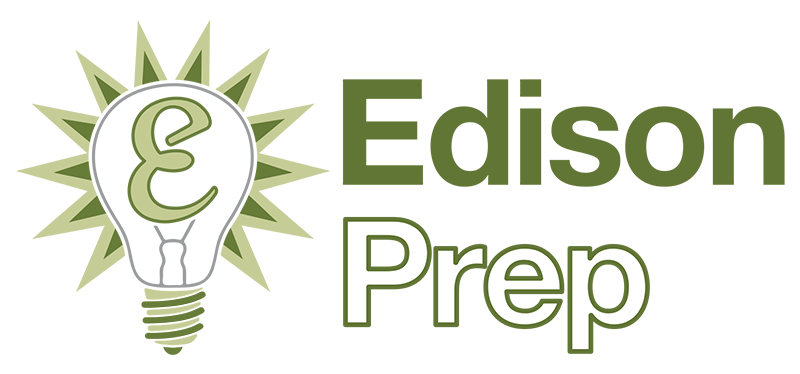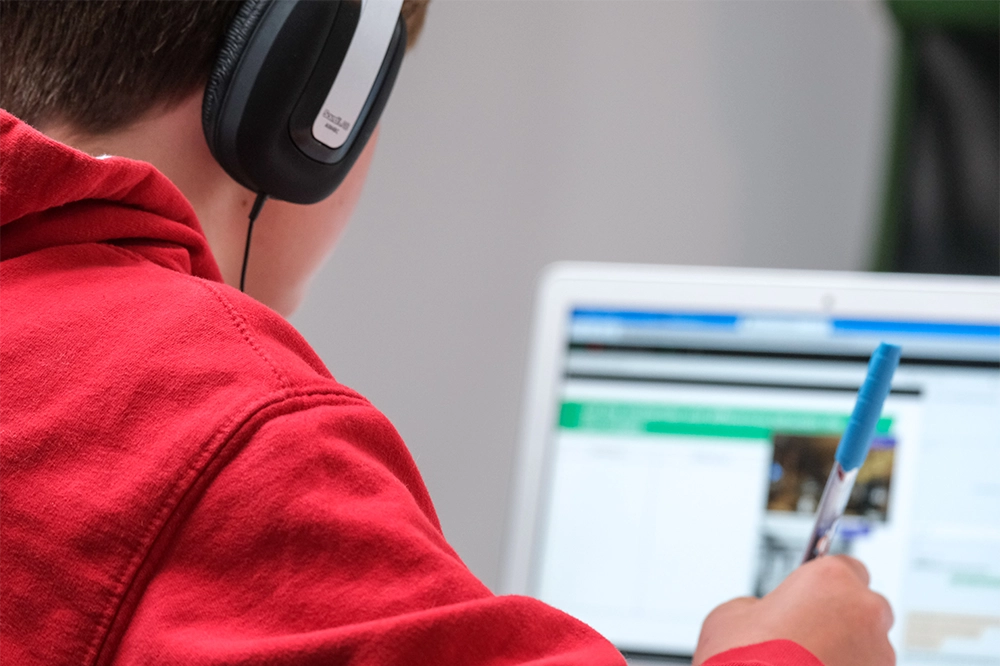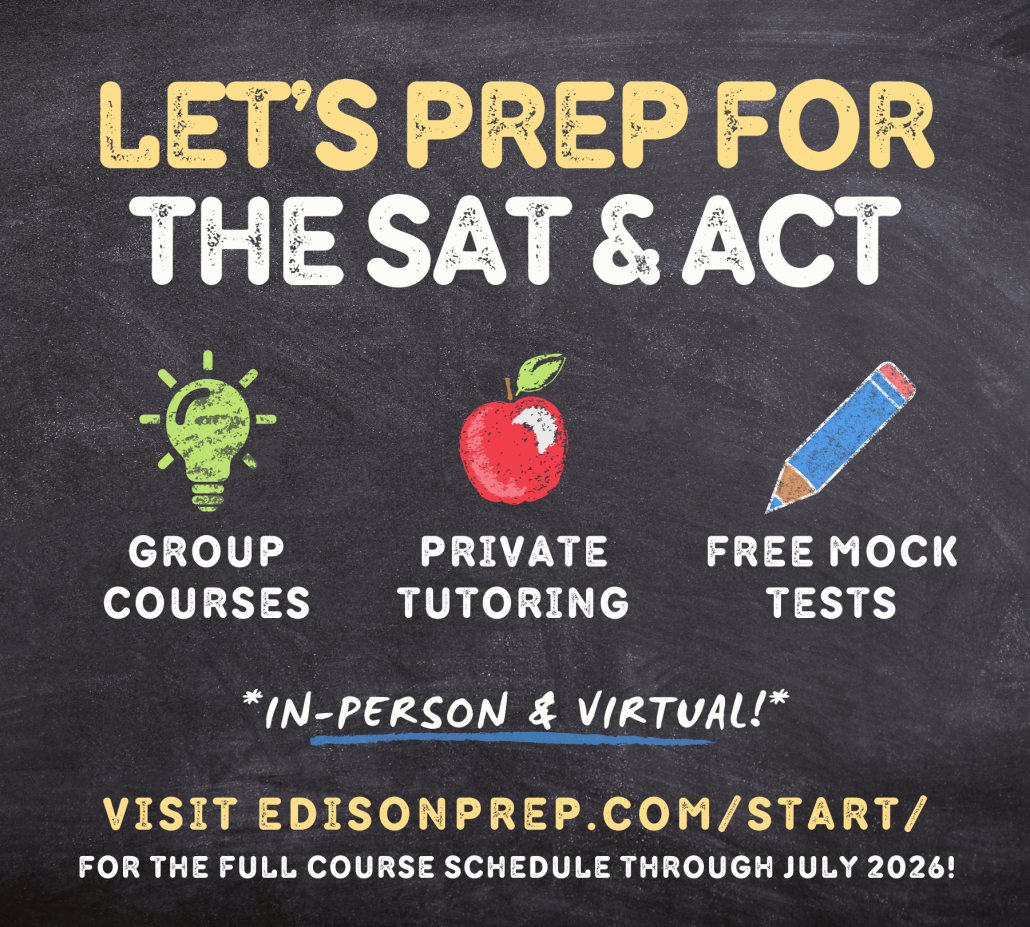A Student’s Perspective: The Value of Hard Work and Practice Volume for Increasing Your SAT/ACT Scores
Most of the blog posts on this site are written by our tutors, but this blog post features commentary from three recent Edison Prep students, all three of whom went up +400 points on the SAT, got a top 5% SAT score, or both. They achieved such heights partially because of tutoring, but just as importantly, they achieved their scores because of their drive, passion, and followthrough.
Student #1:
“My SAT prep definitely took a lot of time, work, and effort with many timed practice tests and reviews, but it is all worth it in the end. It took the whole blue College Board book and the strategy book and then some, but they were such a great use of my time. Without both the skills and confidence that tutoring and practice volume gave to me, I would never have been able to have improved beyond what I thought as possible. Keep up your work, and you will be thankful…you will get the score you want and open up the opportunities for the colleges that you pursue.”
Student #2:
“The reason my score went from a top 25% score to a top 5% score is because my tutors gave me the studying and test taking skills needed to work smarter in combination with working harder. Everyone has the ability to be incorruptible and unwavering in his/her studying–to take multiple tests per week, to wake up at 430am to complete most of a timed SAT before school, to study flashcards in the car, to miss out on a party or two to get the score they seek. I went through the 10 tests in the Blue Book and 13 or so other tests from College Board, plus other materials during a 3 month period. I combined my tendency to do this with the detailed, individual-specific tutoring I was receiving to achieve a score I can be satisfied with. My sports coaches always say, “Hard work beats talent every time. Talent doesn’t work hard.” I believe studying harder and studying smarter are mutually required factors for score improvement. I supplied the effort and tenacity, my tutors provided the knowledgability and insight, and the rest worked itself out. Taking my score from a score that was 150 points lower than UGA’s average to one that’s close to Emory’s average has changed the tone of my application process and the list of colleges to which I can credibly apply.”
Student #3:
“When my mom first signed me up for SAT Prep, I was apprehensive and unsure of what to expect. To be honest, who wants to do
school work over the summer? The SAT is about four hours long, and my first practice test was well below my dream colleges’ SAT averages. The first thing that my tutor stressed to me was the importance of vocabulary for a top score on the SAT. He gave me the infamous “Bulb Book” at Panera Bread on Peachtree Rd. I soon learned that Brian and Silvia had “mined” hundreds of frequently used vocabulary words from practice tests, as well as from past PSAT and SAT booklets.
I’m a visual learner, so I knew that the best way for me to memorize the vocab was to utilize flash cards. My mom’s hairstylist told her that night that the best way to make vocab cards is to write with colored pens, as the brain retains information written in color ink better than writing composed in simply black ink. After my first 2-hour tutoring session, I purchased hundreds of lined white vocab cards and a medley of colored pens (and all for under $20). After my trip to Office Maxf, I was somewhat excited, and I wasn’t sure exactly why. I’ll never forget my tutor’s advice and motivational support that led me to work harder and devote just a few precious hours of my summertime in order to gain 250+ points. What I didn’t realize was that the vocab cards not only helped with Critical Reading, but also with my essay-writing skills (my “bomb-dropping skills”).
Who has time to invest in making vocab cards? I quickly learned that if you try and make cards with silence or music, you will realize that it’s the most boring activity known to man. The best way to make vocab cards is to:
1. Watch T.V. while making them
2. Take frequent breaks
3. Use different colors
4. Make cards for words that you don’t know in the Blue Book
For me, the College World Series was on during my card-making binge, which made the process a lot less painful. Find a time such as a Law and Order marathon, the Olympics, etc. to work on your vocab cards.
After making 950 vocab cards (300 more than the Bulb Book even has), I had spent less than 20 hours, which I would have used for Facebook, Draw Something, Twitter, or other pointless online distractions. When studying your cards, you should repeatedly go through the deck by taking out the cards that you know until you run out of cards. Then do it again. Trust me. Every second spent on reviewing vocabulary is worth it. Don’t procrastinate or rely upon other less effective methods of studying. I only missed one vocab word out of the 20+ vocab-based questions on the real SAT, and I can assure you that the word was not on any of my vocab cards. The SAT is beatable, and vocab is a huge component.”









